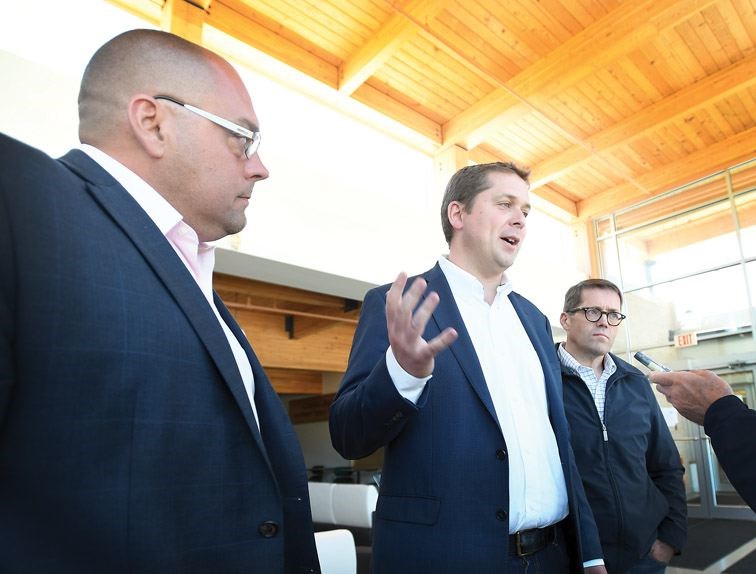Federal Conservative Party leader Andrew Scheer paid a visit to Prince George Monday to get a firsthand look at how the city has accommodated the massive influx of evacuees forced out of their homes by the Cariboo forest fires and to commend the first responders and volunteers.
"I just wanted to come and thank everyone for doing what they're doing and let them know that people across Canada are watching with interest and concern," Scheer said ,following a brief tour of the Northern Sport Centre at UNBC, where dormitory-style quarters continue to be provided for evacuees unable to return home.
Stops also included the downtown fire hall and CNC, where the emergency reception centre remains open. More than 10,000 evacuees have registered in Prince George although it's not clear how many actually stayed in the city nor how many have gone home since evacuation orders were lifted for Williams Lake, most of the surrounding area, and 100 Mile House.
Out of respect for their privacy, Scheer said he did not meet with evacuees while at the NSC. About 70 evacuees remain housed at the facility.
The low-key visit came the same day Prime Minister Justin Trudeau and B.C. Premier John Horgan were in Williams Lake. Horgan briefly visited Prince George later Monday but was unavailable to local news outlets.
Scheer avoided any political comments during his stay.
"I will say at times like this the partisanship kind of drops away," he said. "We're all Canadians and disaster response and emergency services is not a partisan issue, it's not us versus them, it's how can we help."
Scheer's visit included a meeting with Mayor Lyn Hall and representatives from the Canadian Red Cross and Salvation Army. Local Conservative MPs Todd Doherty and Bob Zimmer accompanied Scheer.
"This is one of the largest mass evacuations in B.C. history," Doherty said. "Prince George did it, our community really rallied around this impressive event and hearing the stories is one thing but seeing it first hand is another."
It might not be over as wildfire season typically begins during the August long weekend. Then there is the aftermath as evacuees work to get their lives back together both physically and emotionally.
"One of the things I heard today is the need to respond quickly because things can change hour by hour," Scheer said. "But there are also thoughts about even when the disaster is over, the economic impact, the loss of property, the challenges many people and communities are going to face for months, maybe even years to come after this."



